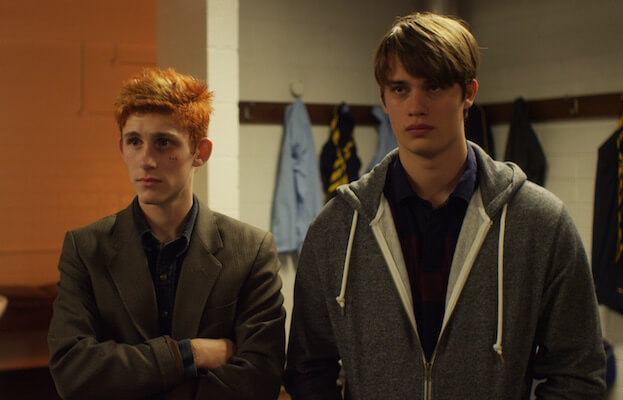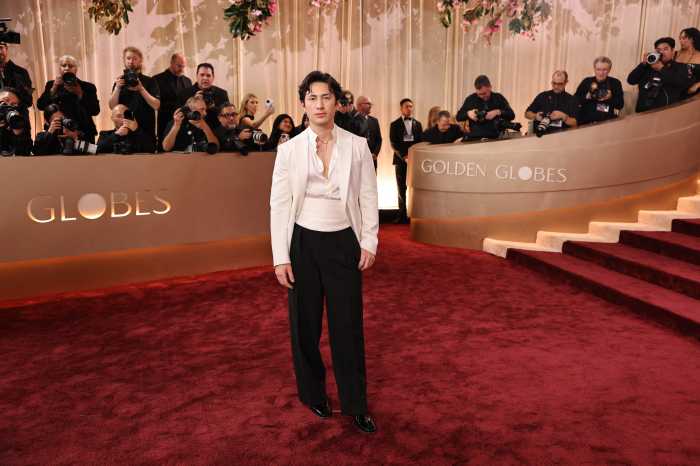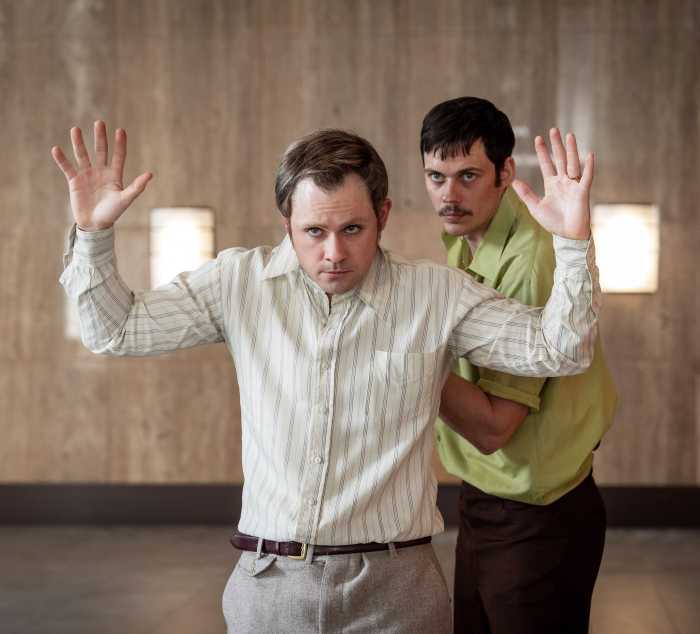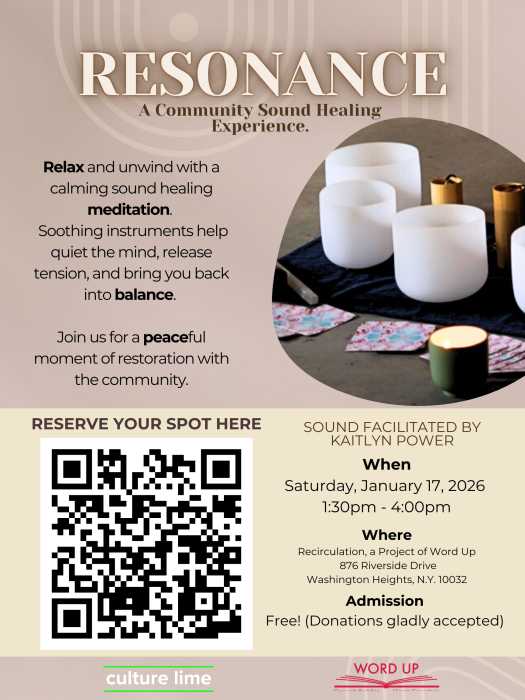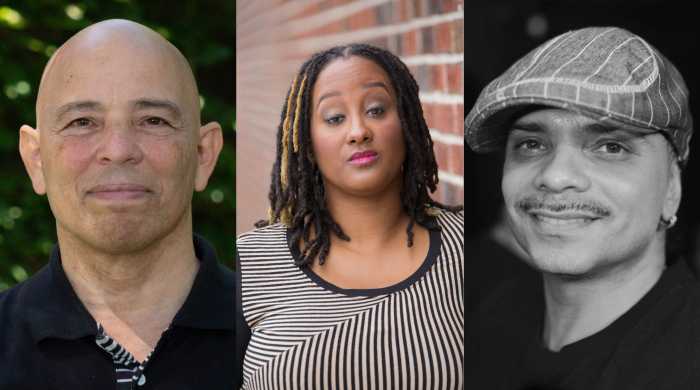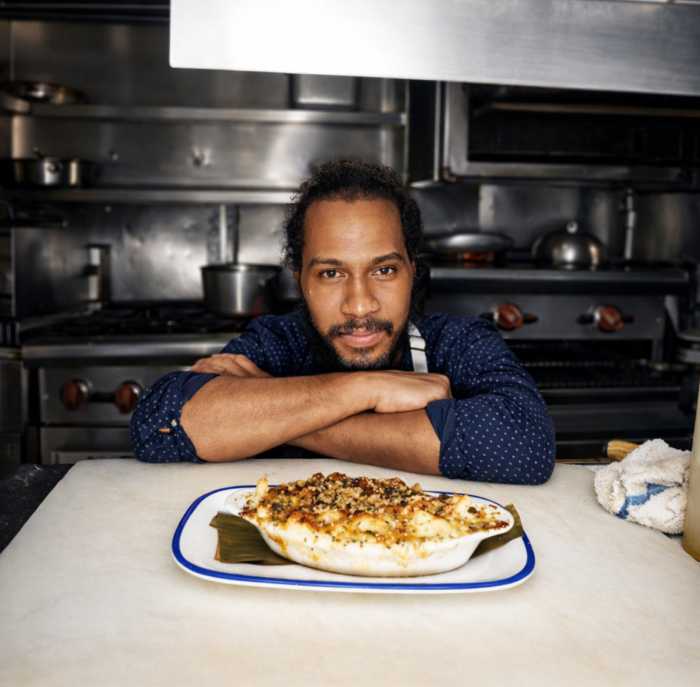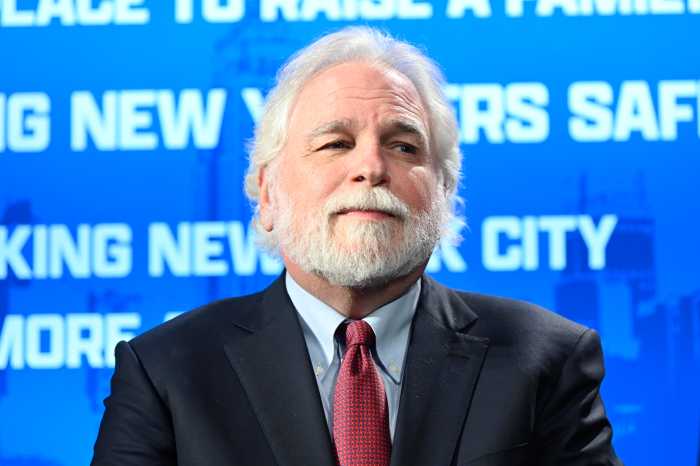Fionn O’Shea and Nicholas Galitzine in John Butler’s “Handsome Devil.” |BREAKING GLASS PICTURES
The Irish import “Handsome Devil” is out gay writer/ director John Butler’s absolutely charming coming-of-age story about two boarding school roommates. Ned (Fionn O’Shea) is a wiry, red headed, music-loving gay outsider, while Conor (Nicholas Galitzine) is a closeted star athlete on the rugby pitch. The film may tread familiar gay teen angst territory, but Butler wisely has the pair connect as friends rather than lovers, a choice he discussed.
Via Skype from Ireland, the filmmaker spoke about “Handsome Devil” with Gay City News.
GARY M. KRAMER: What was your inspiration for “Handsome Devil?”
JOHN BUTLER: The experience of being young is one of ritual humiliation, and that experience is amplified for LGBT kids. As a teen, I was always embarrassed at one level or another. It’s emotional autobiography — not the facts, but the feelings. I’m 50 percent Ned and 50 percent Conor: a gay boy madly into sport, but also a very pretentious music fan and self stylized outsider — the whole “look at me/ don’t look at me” thing. They are both me, and it was fun to pull them apart and have them drift together.
John Butler’s fresh take on the high school buddy flick
GMK: What were you like as a teenager?
JB: I was good at soccer, not rugby; that was the sport of my childhood. But I thought it impossible to be both gay and an athlete. I had great friends, some of whom I still have. I was reasonably happy. I also had that thing that all kids have — the only thing you want more than to fit in was to stand out.
GMK: Like “Handsome Devil,” your previous film “The Bachelor Weekend” [aka “The Stag”] dealt with male bonding. Can you talk about this theme in your work? You make homoerotic things feel unthreatening.
JB: I’m interested in gay-straight alliances. I’m interested in men — obviously I’m interested in men! [laughs] — and how men relate to each other. I make comedies and buddy films. It’s a reflection of my life. I’m friendly with straight and gay men, and they are just my friends. Conor and Ned didn’t have to hook up. That’s interesting to me — that their relationship doesn’t have to land at a level of sexuality, but at identity. It’s a buddy movie.
GMK: What is your purpose in telling gay stories?
JB: To make them mainstream. There are not enough gay happy endings. Comedy films have happy endings. Another gay publication asked me about the film’s fairy tale ending and I got quite annoyed, because in 2017 the ending should be achievable for any LGBT kid who is good at sport. Why do we have to live in the realm of fantasy?
GMK: “Handsome Devil” contains some of the tropes of the coming of age/ coming out film, but they never feel forced. Can you talk about how you made the genre feel fresh?
JB: I always thought it was in the genre of the American high school comedy film — John Hughes’s movies, “Election,” and “Dead Poets Society.” I wanted to make a film like those and update the homophobia. Some of those films don’t age well.
GMK: Conor’s rugby coach, Pascal [Moe Dunford], is almost too homophobic. Can you talk about his character?
JB: He’s true to my experience in the area of sports. I think the root of Pascal’s homophobia is that femininity is a perceived weakness. So all his comments are about gays being like a woman.
GMK: “Handsome Devil” also features an inspirational teacher, Mr. Sherry [gay actor Andrew Scott]. Did you have an inspirational teacher when you were in school?
JB: I did. I had a great English teacher who taught me about “not speaking in a borrowed voice” as Mr. Sherry does. English and art and music teachers are invariably able to access you in a way. They have to be able to talk about authenticity.
GMK: Mr. Sherry insists, “Reveal who you are if you dare!,” while Pascal insists that rugby is a way to “express yourself.” How does “Handsome Devil” reveal who you are and allow you to express yourself?
JB: It doesn’t pick any sides. The truth is gray, there’s never any black and white.
GMK: The music in the film is pretty significant, especially the use of the Rufus Wainwright song in the end. Can you talk about how you chose the tracks?
JB: I was obsessed with getting that Rufus Wainwright song in the film. I wanted an LGBT song to close the film. The Housemartins’ song “Think for a Minute” was selected because I wanted the boys to sing in a high voice, a feminized voice, to expose them as weak.
GMK: Why did you choose the title “Handsome Devil?”
JB: It’s about masculine allure. Beautiful men making other men do stupid shit.
HANDSOME DEVIL | Directed by John Butler | Breaking Glass Pictures | Opens Jun. 2 | Cinema Village, 22 E. 12th St. | cinemavillage.com

